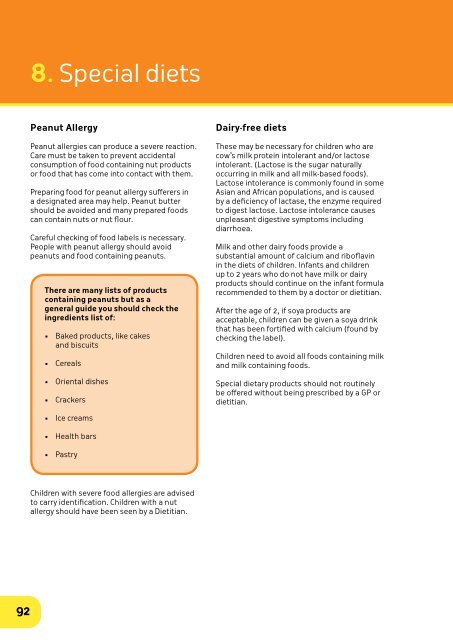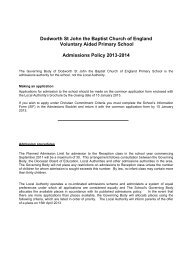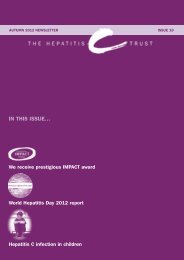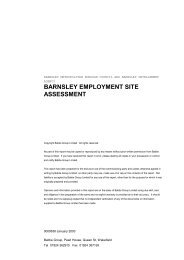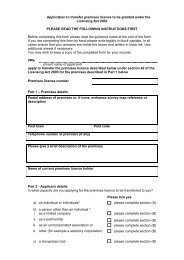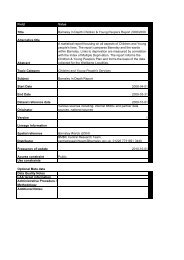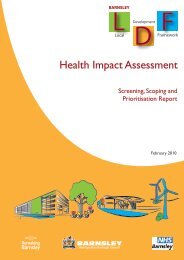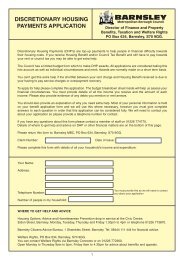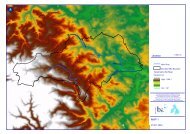Food and Nutrition Guidelines - Barnsley Council Online
Food and Nutrition Guidelines - Barnsley Council Online
Food and Nutrition Guidelines - Barnsley Council Online
You also want an ePaper? Increase the reach of your titles
YUMPU automatically turns print PDFs into web optimized ePapers that Google loves.
8. Special diets<br />
Peanut Allergy<br />
Peanut allergies can produce a severe reaction.<br />
Care must be taken to prevent accidental<br />
consumption of food containing nut products<br />
or food that has come into contact with them.<br />
Preparing food for peanut allergy sufferers in<br />
a designated area may help. Peanut butter<br />
should be avoided <strong>and</strong> many prepared foods<br />
can contain nuts or nut flour.<br />
Careful checking of food labels is necessary.<br />
People with peanut allergy should avoid<br />
peanuts <strong>and</strong> food containing peanuts.<br />
There are many lists of products<br />
containing peanuts but as a<br />
general guide you should check the<br />
ingredients list of:<br />
• Baked products, like cakes<br />
<strong>and</strong> biscuits<br />
• Cereals<br />
• Oriental dishes<br />
• Crackers<br />
Dairy-free diets<br />
These may be necessary for children who are<br />
cow’s milk protein intolerant <strong>and</strong>/or lactose<br />
intolerant. (Lactose is the sugar naturally<br />
occurring in milk <strong>and</strong> all milk-based foods).<br />
Lactose intolerance is commonly found in some<br />
Asian <strong>and</strong> African populations, <strong>and</strong> is caused<br />
by a deficiency of lactase, the enzyme required<br />
to digest lactose. Lactose intolerance causes<br />
unpleasant digestive symptoms including<br />
diarrhoea.<br />
Milk <strong>and</strong> other dairy foods provide a<br />
substantial amount of calcium <strong>and</strong> riboflavin<br />
in the diets of children. Infants <strong>and</strong> children<br />
up to 2 years who do not have milk or dairy<br />
products should continue on the infant formula<br />
recommended to them by a doctor or dietitian.<br />
After the age of 2, if soya products are<br />
acceptable, children can be given a soya drink<br />
that has been fortified with calcium (found by<br />
checking the label).<br />
Children need to avoid all foods containing milk<br />
<strong>and</strong> milk containing foods.<br />
Special dietary products should not routinely<br />
be offered without being prescribed by a GP or<br />
dietitian.<br />
• Ice creams<br />
• Health bars<br />
• Pastry<br />
Children with severe food allergies are advised<br />
to carry identification. Children with a nut<br />
allergy should have been seen by a Dietitian.<br />
92


